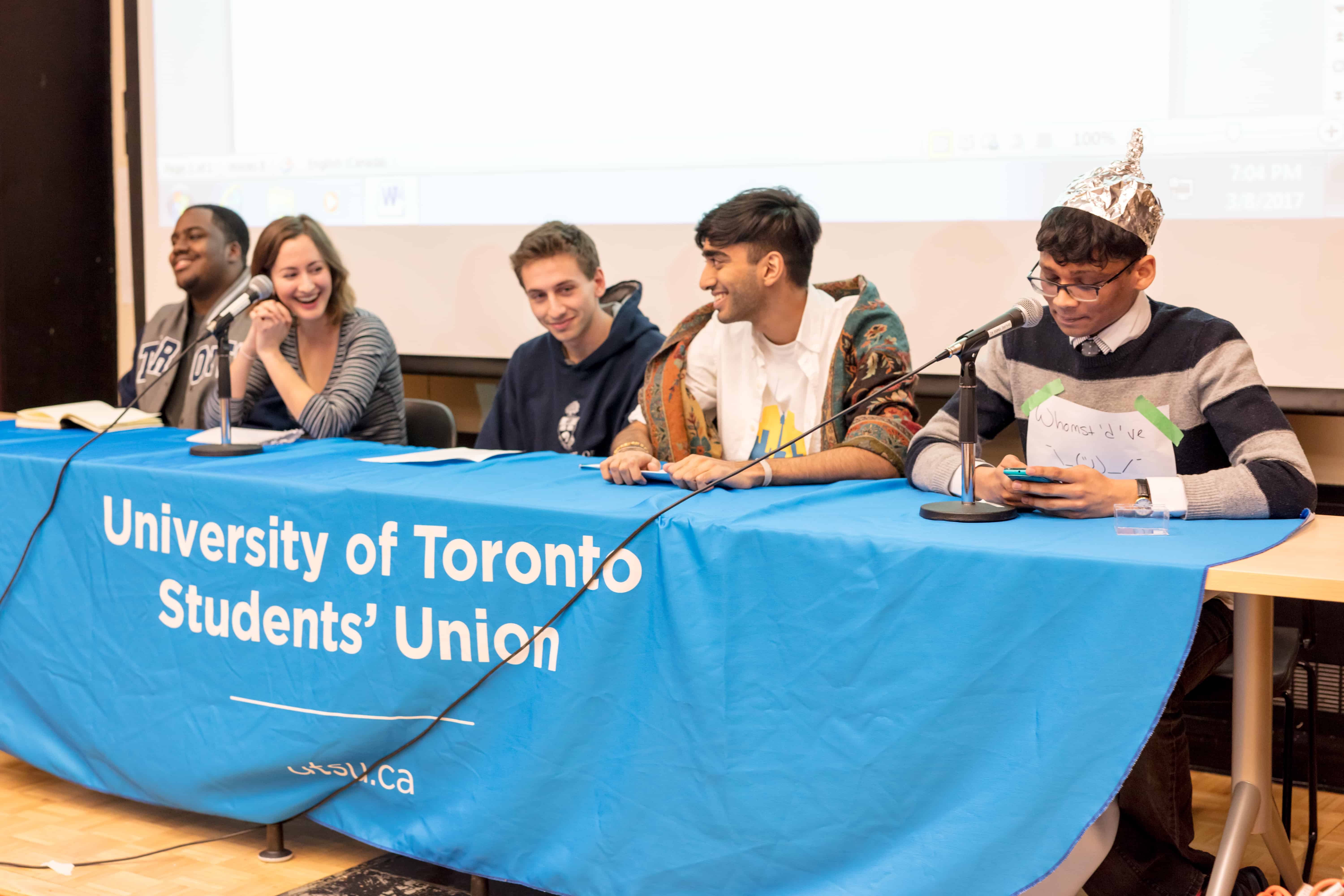The recent UTSU Executive Candidates Debate took place on March 8. Underscoring the many issues discussed was the central theme of change. Whether in relation to student advocacy, tuition rates, mental health, or organizational structure, there was a general consensus among the candidates that the UTSU is a corrupt organization that requires all-encompassing, structural changes.
In retrospect, I can’t recall any instance where something positive about the current administration was said. The candidates of this election cycle have centred their platforms around fixing what appears to them to be fundamentally broken. Though this is a noble goal, candidates should ensure that they are making concrete plans to achieve it and should be held accountable by voters to this effect.
All candidates, no matter the slate, agreed on adopting a firm approach to rising tuition rates, mental health initiatives, and a more inclusive sense of student advocacy. Yet the slates focused their reforms on fixing the self-serving culture of the UTSU, which — according to some candidates — appears to have shifted its operations and authority to the hands of full-time staff that are detached from the campus community.
Other allegations included that members of the union have prioritized their own interests, not those of students, and that previous executives had entered politics for their own résumé-building interests, driven by personal ideologies and appointed through favouritism.
Consequently, a clear sense of animosity pervaded the event’s atmosphere. Perhaps anticipating some sort of hostility, the Chief Returning Officer and anti-harassment officer maintained tight control over procedure, especially when monitoring discussion. Fortunately, this meant that personal attacks toward both the incumbent UTSU executive and current candidates were kept to a minimum.
Despite several important issues having been discussed, it is difficult to understand the specific changes proposed or to foresee which changes will actually be put in place by candidates. Although it is encouraging to hear desires to structurally change the UTSU and foster an environment for more all-encompassing student advocacy, I can’t help but be skeptical.
Not only were the candidates’ platforms too broad and lacking in specifics, but they didn’t seem to take into mind the institutional barriers that may inhibit their goals. Within all political environments, incoming administrations must learn that the issues they are tackling are complex, and that making real change will require more effort than it takes to condemn past promises.
For instance, when asked how they would address the plight of trans students on campus in the wake of the controversy surrounding psychology professor Jordan Peterson, the candidates focused on individual and club consultation, education, and a general prioritization of marginalized students. However, there were no concise statements on how the candidates will specifically go about achieving these goals should they be elected.
Furthermore, to combat rising tuition, candidates said they would continue to lobby the provincial government and Governing Council — yet, the UTSU has been doing this for years now, and no suggestions were made as to how to improve this approach.
Perhaps we must acknowledge that candidates are limited even in what they can promise, considering the current state of affairs of the union. If the UTSU is as systematically corrupt and self-serving as it is said to be, the process of reform will be complicated and met with resistance by the current establishment.
With that in mind, the changes proposed by the candidates are positive, and — while often about policy — politics is very much about principle and effort. From my understanding of all candidates’ motivations, this election will likely result in a UTSU executive that is genuinely committed to the cause of improving the organization and advocating for students’ interests. Moving forward, however, the candidates should focus on developing specific plans, heeding potential barriers, and admitting what they can and cannot do during their terms.
Sam Routley is a second-year student at St. Michael’s College studying Political Science and Philosophy.


